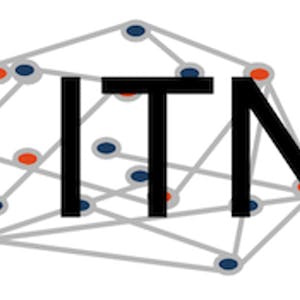This advanced course, "Advanced Reproducibility in Cancer Informatics," offered by Johns Hopkins University, introduces tools that enhance reproducibility and replicability in the context of cancer informatics.
The course is designed for students in the biomedical sciences and researchers using informatics tools in their research. It aims to equip learners with a deeper knowledge of reproducibility tools and their application to existing analysis scripts and projects.
This course is not a comprehensive dive into each of the tools discussed but provides a practical demonstration of their application. It accommodates busy professional learners, allowing them to pick up and put down the course as their schedule allows.
Certificate Available ✔
Get Started / More Info
This course consists of modules covering topics such as defining reproducibility, version control with GitHub, code review, Docker, and automation as a reproducibility tool. Each module provides practical insights and hands-on exercises for learners.
Module 1: Getting started in this course
This module introduces the course and prepares learners for the content and hands-on exercises ahead.
Module 2: Defining Reproducibility
This module delves into the concept of reproducibility, setting the foundation for understanding the tools and techniques introduced in the course.
Module 3: Version control with GitHub
Learners will explore the use of git and GitHub for version control, understanding how these tools contribute to reproducibility in data analyses.
Module 4: Code review - as an author
This module focuses on the role of the author in code review, emphasizing the importance of collaborative and transparent practices in reproducible data analyses.
Module 5: Code review - as a reviewer
Here, learners will understand the perspective of a reviewer in code review processes, gaining insights into effective review practices for reproducibility.
Module 6: Launching Docker
This module introduces Docker and its role in creating reproducible environments for data analysis, providing practical guidance on its implementation.
Module 7: Modifying a Docker image
Learners will delve into the customization of Docker images, understanding how to tailor reproducible environments to specific analysis requirements.
Module 8: Automation as a reproducibility tool
This module explores the use of automation tools for enhancing reproducibility in data analyses, providing insights into efficient and scalable reproducible practices.
Learn data visualization with Tableau to create powerful business intelligence reports and dashboards, preparing you to make data-driven decisions and present compelling...
This course provides an introduction to essential tools and concepts in the data scientist's toolbox, covering topics such as R, RStudio, Github, version control,...
Mastering Data Analysis with Pandas: Learning Path Part 5 equips learners with advanced Pandas skills to define and manipulate DataFrames, clean text data, and visualize...
Troubleshooting Common SQL Errors with BigQuery is a self-paced lab focused on using BigQuery to troubleshoot common SQL errors and query the data-to-insights public...